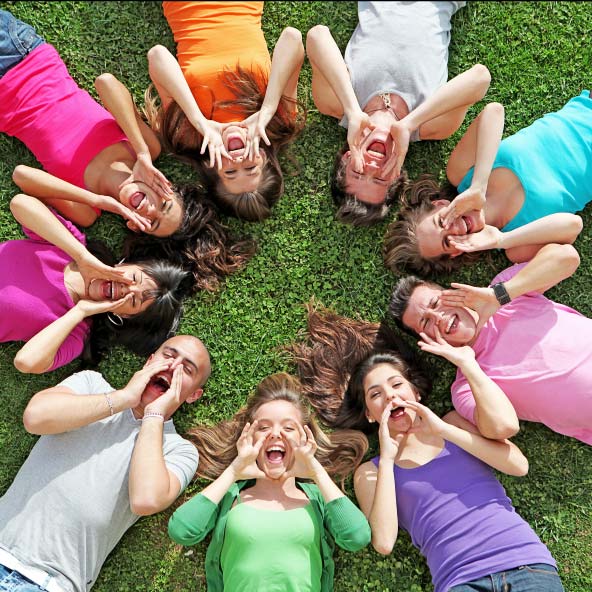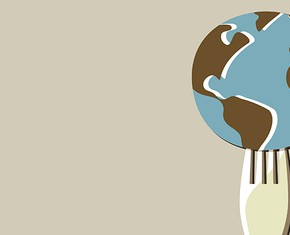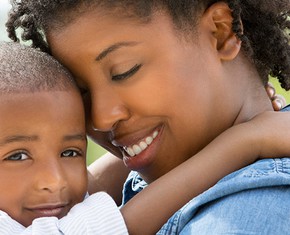The views expressed in our content reflect individual perspectives and do not represent the authoritative views of the Baha'i Faith.
If the sins of the father rest with the son, we will always feel the need to blame others.
That kind of blame, especially when it results in revenge and retribution, keeps the world in a perpetual cycle of violence. If we choose such a path, our children and grandchildren will continue to feel guilt for things done by generations long dead. Is that the picture we hope to paint for future generations? Do we really intend to perpetuate such imbalance? If so, for how long? When is enough, enough?
You must not lose faith in humanity. Humanity is an ocean; if a few drops of the ocean are dirty, the ocean does not become dirty. – Mahatma Gandhi
We can never hope to atone for every wrong committed by those before us. Such an arrangement perpetuates a cycle of retribution, which results in continual demands for more indemnity by one group after the other.
Further, none of us has any control over the life we’re born into. It is our job, then, to do the best we can with what we’re given, and strive to rise above the obstacles before us. Therefore, the best way to atone for the past is to learn from the mistakes made, and move forward into a bright new future where every generation strives to improve the life of their own family, community, nation, and world. The result–progress for both the individual and the collective. The Baha’i International Community, said it this way in its statement “Who is writing the Future?”
However great the turmoil, the period into which humanity is moving will open to every individual, every institution, and every community on earth unprecedented opportunities to participate in the writing of the planet’s future. “Soon”, is Baha’u’llah’s confident promise, “will the present-day order be rolled up, and a new one spread out in its stead.”
 Let’s all commit to forego revenge and retribution, making a conscious decision to give our children a clean slate to build upon. Let’s internalize the Golden Rule, teach our children to treat all people as we wish to be treated, and restore true equality in one generation. There’s a reason the Golden Rule is reiterated in every religious dispensation—because kindness equals power, the power to affect the lives of others, an infinite power that each one of us possesses. Every human being can access that power, during every moment of our existence.
Let’s all commit to forego revenge and retribution, making a conscious decision to give our children a clean slate to build upon. Let’s internalize the Golden Rule, teach our children to treat all people as we wish to be treated, and restore true equality in one generation. There’s a reason the Golden Rule is reiterated in every religious dispensation—because kindness equals power, the power to affect the lives of others, an infinite power that each one of us possesses. Every human being can access that power, during every moment of our existence.
So where do we go from here? Do we keep fighting like children, or is humanity finally entering a stage of collective maturity? We are all created in the image of God. This does not pertain to one segment of the population, but to all of us. Yet, we’re all so different. How can we unify? The Baha’i teachings offer the world a model of unity:
[the Baha’i community] is a single social organism, representative of the diversity of the human family, conducting its affairs through a system of commonly accepted consultative principles, and cherishing equally all the great outpourings of divine guidance in human history. Its existence is yet another convincing proof of the practicality of its Founder’s vision of a united world, another evidence that humanity can live as one global society, equal to whatever challenges its coming of age may entail. If the Baha’i experience can contribute in whatever measure to reinforcing hope in the unity of the human race, we are happy to offer it as model for study. – The Universal House of Justice, The Promise of World Peace, October 1985.
Transitioning from adolescence to adulthood takes effort, both individually and societally. On an individual level, the Baha’i teachings recommend bringing ourselves to account each day for our own thoughts and deeds, and striving to improve our own inner life and character. We may not be in a position to control everything, but we can control how we act or react in any given situation.
As we come of age, let’s transcend perpetual retribution, increase our faith in humanity, outstrip obstacles facing our own circumstances, personify the Golden Rule, perfect our inner lives and private character, and seek to find that ever-elusive balance. After all, balance is a result of maturity, and maturity is a prerequisite to equality, justice, unity, and peace.
All created things have their degree or stage of maturity. The period of maturity in the life of a tree is the time of its fruit-bearing…. The animal attains a stage of full growth and completeness, and in the human kingdom man reaches his maturity when the light of his intelligence attains its greatest power and development…. Similarly there are periods and stages in the collective life of humanity. At one time it was passing through its stage of childhood, at another its period of youth, but now it has entered its long-predicted phase of maturity, the evidences of which are everywhere apparent…. That which was applicable to human needs during the early history of the race can neither meet nor satisfy the demands of this day, this period of newness and consummation. Humanity has emerged from its former state of limitation and preliminary training. Man must now become imbued with new virtues and powers, new moral standards, new capacities. New bounties, perfect bestowals, are awaiting and already descending upon him. The gifts and blessings of the period of youth, although timely and sufficient during the adolescence of mankind, are now incapable of meeting the requirements of its maturity. – Abdu’l-Baha, The Promulgation of Universal Peace, p. 438.
















Comments
Sign in or create an account
Continue with Googleor